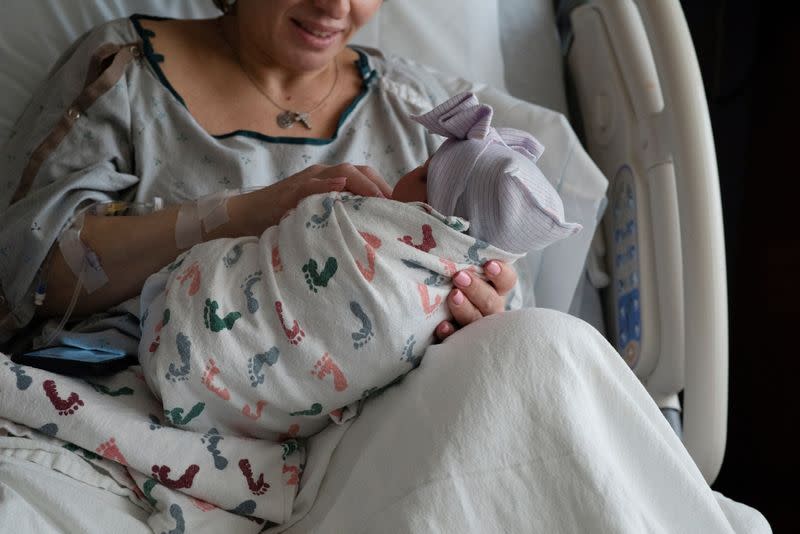Birth rates halve in richer countries as costs weigh, OECD report says

By Matteo Allievi
(Reuters) - Birth rates have dropped sharply in some of the world's richest states and are likely to stay low as economic worries leave people weighing the costs of having children, a report from the Organisation for Economic Cooperation and Development said.
Many in OECD member countries were now choosing to have children later in life or not at all, it said in a paper released on Thursday. "Both young men and women increasingly find meaning in life outside of parenthood," it added.
The total fertility rate dropped to 1.5 children per woman in 2022 from 3.3 in 1960 on average across OECD countries, the report said, using a unit measuring the average number of children born per woman over a lifetime.
"While OECD countries are using a range of policy options to support families, the economic cost and long-term financial uncertainty of having children continue to significantly influence people's decision to become parents", Stefano Scarpetta, director of the OECD's Employment, Labour and Social Affairs Directorate, said in a conference call.
Particularly low total fertility rates were measured in Korea, at 0.7 and Italy and Spain, each with 1.2 children per woman. The highest were in Israel on 2.9, followed by Mexico and France, each with 1.8.
The average age of women giving birth rose from 28.6 in 2000 to 30.9 in 2022 in the club of major industrialized economies.
When comparing women born in 1935 and in 1975, the percentage of ones without a child doubled in Estonia, Italy, Japan, Lithuania, Poland, Portugal and Spain, according to the OECD data.
"Childlessness is definitely going up almost everywhere," Tomas Sobotka, researcher at the Vienna Institute of Demography, said.
The pressure of being good parents, which implies dedicating time into raising children, was also prompting young people to postpone or avoid having families, the Paris-based organisation said.
"Qualitative evidence from Europe finds that one important reason why some women in their early thirties choose to postpone having children is that they do not believe that they can live up to the ideal of motherhood", it added.
(Reporting by Matteo Allievi, editing by Andrew Heavens)


